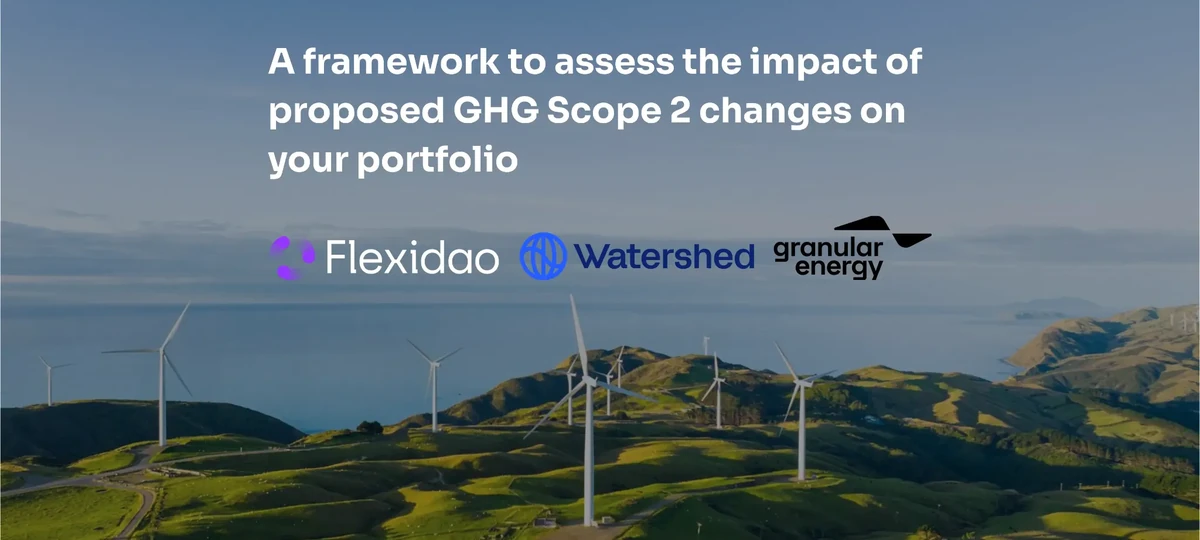How to Effectively Manage Your Renewable Energy Certificates (RECs)
How to Effectively Manage Your Renewable Energy Certificates (RECs)
Master the management of Renewable Energy Certificates (RECs) to ensure compliance and support renewable energy goals.
Renewable Energy Certificates (RECs) serve as an important tool for organizations aiming to demonstrate their commitment to clean energy. Understanding what RECs are, their importance in a clean energy strategy, best practices for managing them, and the regulatory landscape surrounding them is essential for businesses seeking to maximize the benefits of renewable energy.
Overseeing a global Renewable Attribute Certificates (REC) portfolio can present significant challenges due to the time-consuming and complex nature of consolidating data from multiple sources. This requires a considerable amount of manual effort, putting a strain on internal resources. This blog expounds on the steps you need to take to avoid inefficiencies and mitigate potential risks from dismantling your organization’s efforts to streamline REC portfolio management.
What Are Renewable Energy Certificates (RECs)?
Renewable Energy Certificates (RECs) — the equivalent of Energy Attribute Certificates (EACs) but in North America — are exchangeable, non-physical credits that verify the generation of one megawatt-hour (MWh) of electricity from renewable sources. These entities serve as a regulatory tool to confirm that the energy has been delivered to the common network of power lines. Companies use RECs to meet regulation and voluntary green marketing standards.
The Importance of RECs
Incorporating RECs into a business’ clean energy strategy offers several significant advantages. Firstly, RECs enable businesses to offset their carbon footprint and demonstrate a commitment to sustainability and environmental stewardship. By purchasing RECs equivalent to their energy consumption, organizations can effectively "green" their electricity supply, regardless of their location or access to renewable energy resources. This is because by purchasing the certificates, they are helping to drive up the demand for renewable sources.
Secondly, RECs provide flexibility and scalability. For businesses unable to install renewable energy infrastructure on-site due to cost, space, or other constraints, purchasing RECs offers a viable alternative to directly sourcing renewable electricity. Additionally, RECs can be procured in varying quantities to match the energy consumption needs of businesses of all sizes, making them accessible to companies at different stages of their sustainability journey.
Having a clean energy procurement strategy backed up by RECs can enhance brand reputation and stakeholder relations. Demonstrating a commitment to renewable energy through renewable energy certificate programs, for instance, can resonate with environmentally-conscious consumers, investors, and employees, bolstering brand loyalty and attracting socially responsible investment.
Best Practices for REC Management
Effectively managing RECs requires a strategic approach to procurement, tracking, and reporting. Here are some best practices to consider:
- Set Clear Objectives
Define your renewable energy goals and establish clear targets for REC procurement. Whether aiming for carbon neutrality, reducing greenhouse gas emissions, or meeting corporate sustainability commitments, align REC purchases with your overarching business objectives.
- Source Certified RECs
Ensure that purchased RECs are certified and verified by reputable third-party organizations, such as Green-e or the Center for Resource Solutions. Certification assures that the RECs represent genuine renewable energy generation and comply with industry standards.
- Implement Robust Tracking Systems
Invest in reliable tracking systems or software to accurately monitor and document REC transactions. Maintain detailed records of REC purchases, retirements, and usage to facilitate transparent reporting and compliance with regulatory requirements.
- Engage Stakeholders
Foster collaboration with internal stakeholders, including sustainability teams, procurement departments, and finance professionals, to integrate REC management into broader sustainability initiatives. External engagement with the renewable energy certificate market, suppliers, industry associations, and regulatory agencies can also provide valuable insights and support.
- Evaluate Performance
Regularly assess the effectiveness of the REC strategy against established goals and performance metrics. Monitor key indicators such as carbon intensity, renewable energy penetration, and cost-effectiveness to identify areas for improvement and optimization.
Understanding REC Programs and Regulations
While REC regulations vary by jurisdiction, several key concepts are universally applicable:
- Renewable Portfolio Standards (RPS)
Many states and regions have implemented Renewable Portfolio Standards mandating a minimum percentage of electricity sales to come from renewable sources. Compliance with RPS requirements often involves the use of RECs to demonstrate renewable energy procurement.
- Voluntary Renewable Energy Markets
In addition to regulatory compliance, businesses can participate in voluntary renewable energy markets to support renewable energy projects and enhance their sustainability credentials. Voluntary REC purchases enable organizations to go beyond regulatory mandates and make a positive environmental impact.
- International Standards and Initiatives
Globally, initiatives such as the International REC Standard (I-REC) facilitate cross-border renewable energy certificate trading of renewable energy attributes, enabling businesses to access renewable energy markets beyond their domestic borders while ensuring transparency and integrity in REC transactions.
Where Does Flexidao Come In?
Flexidao offers a robust Clean Electricity Portfolio Management and Reporting solution which simplifies the complexities of electricity management. By centralizing all your electricity contract and certificate data, we eliminate siloed information and a risky single point of failure. This helps increase oversight for risk mitigation, monitoring of targets and goals, and streamlined reporting for businesses.
Why Choose Flexidao
Simplified Management of Your Energy Portfolio
Flexidao’s solution integrates both online and offline registries to consolidate all REC data on a single platform, enabling automated data retrieval and near real-time transactions via API. This reduces the time, effort, and resources needed for portfolio management and reporting tasks, including data retrieval, processing, and analysis, and certificate settlement, retirement, allocation, and traceability.
Enhanced Risk Monitoring
Flexidao streamlines your end-to-end energy procurement processes, from unbundled EACs to PPAs, in order to effectively manage contracts throughout their lifecycle, resolve discrepancies, and identify potential gaps in your procurement strategy.
Consolidated and Standardized
Flexidao automates data collection from various third-party sources, including automated extraction from EAC registries for available (issued/transferred) and cancelled (redeemed/retired) certificates, as well as from the client's existing data repositories. The data undergoes quality assurance checks for consistency and anomaly detection before being securely stored in the cloud, adhering to strict enterprise standards.
Seamless Integration
Flexidao offers a standard API that can be easily incorporated into your current systems while ensuring data integrity, accuracy, and accessibility for all system users. Flexidao’s EAC Portfolio Overview and Contract Management solution offers a comprehensive view of EAC balances, certificate status, and transactions, with detailed reporting and volume discrepancy flagging. It tracks contract performance against KPIs and provides monthly insights for accurate monitoring and data analysis.
Optimized Sustainability Reporting
We help your organization collect and manage proof for robust reporting to sustainability initiatives like CDP and RE100, as well as optimize REC allocation to minimize Scope 2 market-based emissions.
Contact us to optimize your energy management portfolio today.


.webp)





